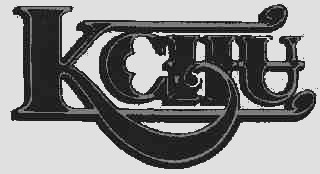 station issued 20 program guides which included articles, artwork, poetry, and stories contributed by the volunteers. Funding was accomplished by on-air pledge drives and occasional live events, however the monies raised never paid all the bills. Lorenzo Milam helped pay the bills as the station struggled to gain a foothold and economic support in the Dallas market. Eventually internal discord within the staff and continuing financial insolvency led Lorenzo to withdraw his financial support from the station. At that point the tower and most of the broadcast equipment were repossessed. Other equipment and the station's music collection disappeared along with the volunteers. Milam reported the KCHU experience left him over $250,000 in debt.
station issued 20 program guides which included articles, artwork, poetry, and stories contributed by the volunteers. Funding was accomplished by on-air pledge drives and occasional live events, however the monies raised never paid all the bills. Lorenzo Milam helped pay the bills as the station struggled to gain a foothold and economic support in the Dallas market. Eventually internal discord within the staff and continuing financial insolvency led Lorenzo to withdraw his financial support from the station. At that point the tower and most of the broadcast equipment were repossessed. Other equipment and the station's music collection disappeared along with the volunteers. Milam reported the KCHU experience left him over $250,000 in debt. Here's a link to an old 1995 site about KCHU: http://wild-bohemian.com/kchu.htm
After the station went off the air, Milam looked for a new organzation to take over the license and hopefully begin broadcasting again. On January 1, 1978 he turned the license over to a new group who renewed the license, formed a new board of directors, and changed the 90.9 FM frequency call letters to KNON. In 1978 Agape was approached by the owners of 89.3 FM with the idea of swapping frequencies in exchange for broadcasting equipment and other considerations. Due to the lower broadcasting power license (10 kilowatts at 89.3 FM versus 100 kilowatts at 90.9 FM) Agape declined.
For the first several years, regular filings were made with the FCC and there were few problems as there were other open frequencies in the non-commercial band in the DFW area. During the first 5 years the station was off the air, there was little action towards getting the station back to broadcasting. One near revolt of the Agape board was quelled by board action. At one point the board considered disbanding. From May 1980 to May 1981, the Agape board did not meet at all and a quorum had not been met in the year before that.
By the early 80's, non-commercial frequencies in this area were filling up and other broadcasters became interested in the unused 100,000 watt license at 90.9 FM. In the spring of 1983, FCC challenges to the license were filed based on the fact that KNON was not broadcasting. After several appeals, the FCC issued an order that if KNON was not on the air by July 31, 1983, the license would be forfeited.

This comment has been removed by a blog administrator.
ReplyDeleteIt's inspiring to learn about KNON’s history rooted in community radio and its dedication to diverse programming.
ReplyDelete